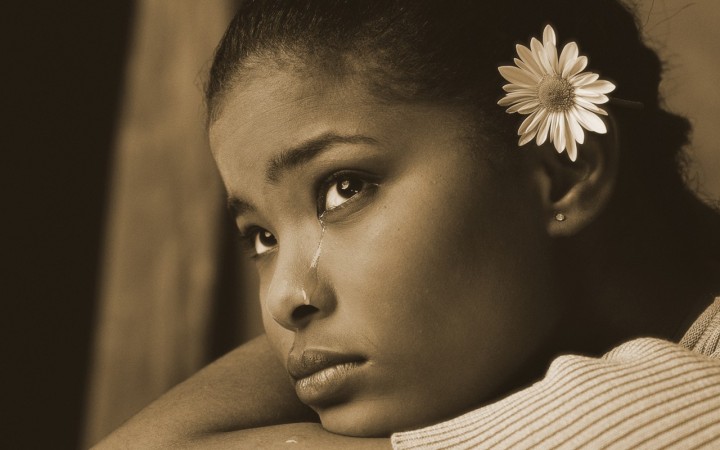
Last week I was speaking with a young Black girl who had just turned 13 and was arrested for hitting her mother. This young girl was very, very angry. You could see it in her body language, in her terse answers to my questions, the scowl on her face and her overall negative attitude.
I asked her why she was so angry. She responded, “I don’t know”. She seemed angry at the world. She had been suspended twice from school for fighting, but this was the first time she had ever been arrested. I was afraid it wouldn’t be the last if she didn’t learn how to address her anger.
I continued with my assessment and when I got to the questions about sexual abuse, she told me impassively that she had been raped at the age of seven by her mother’s then boyfriend.
Bingo. I knew that at least in part, her anger was tied to that traumatic experience. She went on to tell me that the boyfriend was now in prison and that she felt like she was left unprotected by her absent biological father and her neglectful mother.
I was shocked and angered when she told me that after the rape, she only received two weeks of counseling. Two weeks of counseling does nothing for almost any issue, let alone something as tragic as childhood sexual abuse.
I am almost positive that she was offered more than two weeks of counseling, or at the least referred for more counseling and her mother didn’t follow through. I can’t be certain, but from my experience it’s often the parents who just want to “move passed” the situation and downplay it’s potential affects on their child.
I asked this young girl if she thought the sexual abuse she experienced affected her in any way. She replied, “no”. Of course at 13 she is too young to understand the subconscious affects of sexual abuse. She’s too young to understand that all that anger she has inside of her that is already disrupting her life can most likely be attributed to her past.
Survivors of childhood sexual abuse are more likely to deal with a host of mental health problems including anger issues, depression, eating disorders, guilt, shame, anxiety, relationship problems, dissociation patterns, repression and self-blame.
This young girl is just one of the 61% of Black girls who have experienced sexual abuse at the hands of men they know and should be able to trust according to a study done by Black Woman’s Blue Print .
Robin Stone, author of No Secrets, No Lies: How Black Families Can Heal From Sexual Abuse (2004) says that one out of four Black girls will be sexually abused by the age of 18.
Most of the sexual abuse comes from within the family and friends circle. Many go unreported. For every every Black woman who reports a rape, at least 15 do not according to the Bureau of Justice Statistics (2009).
22-29% of child sexual abuse victims are boys, many who often don’t report it due to fear, shame and confusion. Untreated, these boys often go on to have a plethora of behavior problems, many of which lead to future problems in school, run-ins with the law and relationship problems.
There are many, many reasons sexual abuse in families happen in secrecy including families wanting to keep it a secret (out of shame. to protect the victim and/or perpetrator) and sadly because of the historical stereotypes of Black women being seductive or sexually aggressive, even at young ages. It makes it hard for society to see them as innocent victims in many cases.
Talking to professional Black women I know personally, I was shocked to find out that many of them had experienced childhood sexual abuse at the hands of uncles, older cousins or other males they knew. Most did not tell anyone as a child.
This trend to not talk about childhood sexual abuse period has to change, especially in the Black community where it appears that our collectivist culture, fear of stereotypes and history itself, makes us reluctant to discuss and address sexual abuse with the intensity that it deserves.
There is so much to talk about when it comes to childhood sexual abuse, especially in the Black community. If you want to know more you can start by reading an older post I wrote about childhood sexual abuse and if you’re interested in learning more about sexual abuse in the Black community I wholeheartedly recommend Robin Stones book, No Secrets, No Lies: How Black Families Can Heal From Sexual Abuse.
Families need to talk about and not be afraid to address childhood sexual abuse. As Corey Booker said on a totally different subject, but it rings true here as well, “Your silence and amnesia is complicity.” .





